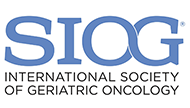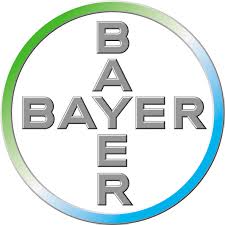Management of Prostate Cancer in Elderly Patients
Even though significant progress has been made in the standard of care, with more and more therapies available that target specific kinds of tumors, the greatest successes have been limited to only a few types of cancers. According to Global cancer statistics 2018 (GLOBOCAN estimates of incidence and mortality worldwide), prostate is reported to be one of the most frequently diagnosed cancer in 105 countries. With regard to mortality, it is the leading cause of deaths in 46 countries. Sanofi is among the frontrunners that have forged new paths for the treatment of prostate cancer. With a generous sponsorship from Sanofi, in 2010 SIOG established a taskforce that issued guidelines on the management of prostate cancer in older patients. SIOG has issued in 2014, 2017 and in 2019 updates of these guidelines. Recent advancements in the field brings SIOG to propose an update of its recommendations and the corresponding case based expert interviews.
Treatment of Ovarian cancer in older adults – Development of treatment algorithms and educational program
There are many reviews for the treatment of ovarian cancer in older patients. Despite this, there are problems associated with treatment such as inadequate staging, less aggressive surgery and chemotherapy treatments not according to standard guidelines. Many medical oncology training programs do not expose fellows to gynecologic cancers as the surgeons and radiation oncologists treat the bulk of patients. Therefore, there is a critical educational gap. This is particularly present in the older patients. A SIOG taskforce can contribute to fill this education gap by providing a comprehensive treatment review and educational program. The advent of genetic testing and Parp therapy has added a new dimension requiring more educational initiatives.
The management of elderly metastatic Renal Cell Carcinoma (mRCC) patients
Treatment of metastatic renal cell carcinoma (mRCC) has evolved tremendously over the past decade since the advent of targeted therapies. In line with this, SIOG had established a task force in 2008 to come up with treatment recommendations for the elderly mRCC patient, an important group that has often been overlooked in terms of recruitment into clinical trials1. In that guideline which was published in a high impact journal in 2009, the task force not only analyzed the evidence regarding the state of art management in mRCC in the elderly but was also able to apply that knowledge by taking into consideration factors unique to an elderly population. These factors include physiological, pathological, pharmacological, and psychological factors that distinguish the older mRCC patients from those younger.
Metastatic Renal Cell Cancer (mRCC) in the elderly
The task force completed the first systematic review of the role of targeted agents specifically in the elderly population.
Radiopharmaceuticals in the elderly cancer patient
Molecular imaging using radiopharmaceuticals has a clear role in visualising the presence and extent of tumour at diagnosis and monitoring response to therapy. Such imaging provides prognostic and predictive information relevant to management, e.g. by quantifying active tumour mass using positron emission tomography/computed tomography (PET/CT). As these techniques require only pharmacologically inactive doses, age and potential frailty are generally not important. However, this may be different for therapy involving radionuclides because the radiation can impact normal bodily function (e.g. myelosuppression). Since the introduction of Iodine-131 as a targeted therapy in thyroid cancer, several radiopharmaceuticals have been widely used. These include antibodies and peptides targeting specific epitopes on cancer cells. Among therapeutic bone seeking agents, radium-223 (223Ra) stands out as it results in survival gains in patients with castration-resistant prostate cancer and symptomatic bone metastases. The therapeutic use of radiopharmaceuticals in elderly cancer patients specifically has received little attention. In elderly prostate cancer patients, there may be advantages in radionuclides’ ease of use and relative lack of toxicity compared with cytotoxic and cytostatic drugs.






